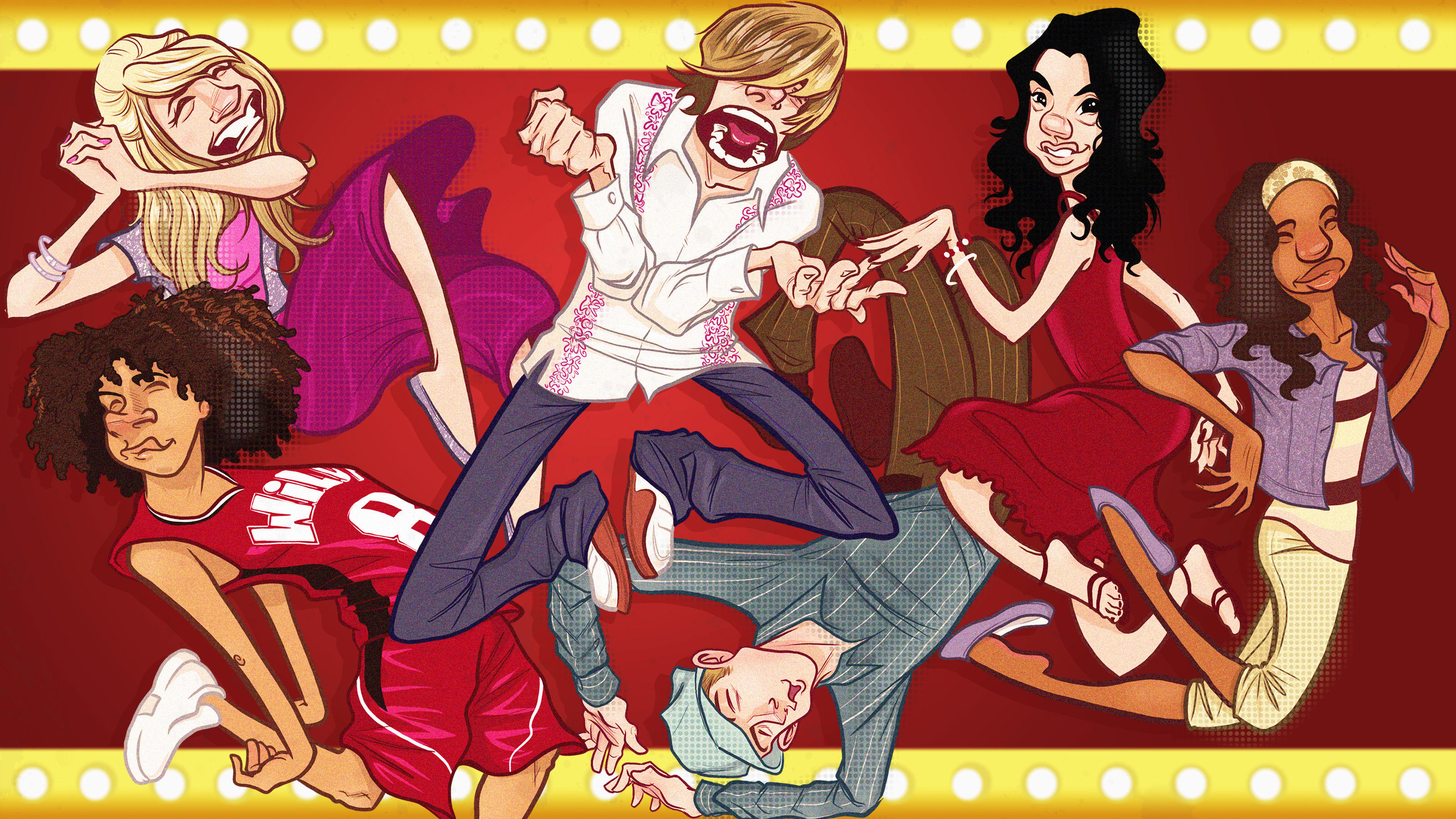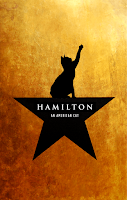Earlier this month, I published yet another book! I've been more than usually prolific as a writer since the Great Pandemic started. I mean, what else have I had to do? So my output may slow down, now that I'm actually making theatre again!
Although, full disclosure, I do have six or seven ideas for books I'd like to write, and four ideas for shows I'd like to write. I wish I could write faster.
The awesome Ted Chapin at the Rodgers & Hammerstein Organization recently said to me in an email, "You really know how to milk a topic, Scott!" I laughed out loud. It's so true. It's kind of a quest for me.
Yes, in addition to my eight collections of musical theatre analysis, which I consider the Soul of my writing life, I also wrote a history book, and then just in the last few years, I decided there were other kinds of things I wanted to write, books that I think of as Novelty Books.
But they're not just novelty books. They also explore the musical theatre today as an evolving art form, why it's important, how its processes works, how its artists work, how it started, how it has evolved, and where it may be heading. I really believe that my place in the world is to help people know and understand this amazing art form, the full depth and breadth and power of musical theatre. I hope all my books do that, even the sillier ones.
And there has also been a second motivation for me to write in recent years.
Musical theatre fans today, in the US and around the world, have a musical theatre "fan culture" like never before in the art form's history. The internet (and YouTube!) is the biggest reason, but there's also BroadwayCon, the Lights of Broadway trading cards and the Squigs caricatures (carrying on the Hirschfeld tradition), the amazing New York venue Feinstein's 54 Below, and the reopened Drama Book Shop (thank you, Lin and Tommy!) And there are more nonfiction books about our art form on the shelves than ever before. Looking at the future releases on Amazon is like walking into a candy store for me!
And I want to contribute to that culture, a culture I wish had existed when I was in high school. I realized I want to create (informative) novelty books, so that actors (and others) in high school, college, community theatre, regional theatre, New York theatre, would all find something funny in them, and familiar, even meaningful.
My first book was the quiz book It's a Musical!: 400 Questions, and as with all my projects, I designed it to entertain, waste time, open up your perspective, challenge your preconceptions -- but mostly, just to be fun. I can only imagine how much geeky-artsy fun we would have had with this book in high school, on the bus ride from St. Louis to Muncie, Indiana, for the International Thespian Conferences.
Next up for me was a real dream project, a collection of short "weird fiction" called Night of the Living Show Tunes, combining my love of musicals and my love of horror fiction, and dedicated to "the Stephens, Sondheim and King, true giants of American storytelling."
But the pandemic was still raging, so I had more time to fill. Again, I tried to think what teenage fanboy Scott would've loved, and that led to an inspiration -- a book of Broadway Musical themed Christmas carols. I shit you not. These are traditional carols with entirely new lyrics about musicals; plus the traditional four-part vocal arrangements, though tweaked and "freshened up" a bit. I had so much fun writing these. The one title that still makes me giggle is "Away in a Mame Tour." My hope was to contribute in a fun and enlightening way to this wonderful, evolving culture around musical theatre fandom. It's pumping so much energy into the art form.
So my next book was the most non-threatening, non-pretentious, easily accessible treatment I could muster -- an overview of the musical theatre, the art form, as a whole, written for "civilians." It's called The ABCs of Broadway Musicals: A Civilian's Guide, a small format, fairly short book, a kind of one-stop shop for a surprisingly thorough but easy-to-digest crash course. It can be read straight through or in little pieces. (Don't tell anybody, but there are going to be more volumes of my ABCs books coming!)
Every time I start on a new project, I think about the tweens and teens just discovering musicals; the hardcore high school drama kids; the serious college theatre majors; the crazy people like me who literally give their lives over to this beautiful art form; and the people who sit in our audiences show after show -- I think about what these people would enjoy, what might surprise and delight them, and what might also surreptitiously educate them, spoonful-of-sugar-like.
It was with all that in mind that I started off on this latest project, Theatre Cats: The Old Producer's Book of Dramatical Cats, again with illustrations by my actor buddy Zak Farmer (who also illustrated our Dr. Seuss style Shellie Shelby Shares the Spotlight). I've written a bunch of stage musicals, but I had never written a collection of poems before. And it was hard! And it was fun!
Artists often say that they make the best art under the most limitations. That sort of describes the entire history of New Line Theatre, doesn't it?
When director Michael Mayer decided to adapt American Idiot for the stage, he set himself some tough limitations. He chose to keep the songs in the exact same order as the album (though with a couple songs from Green Day's next album interpolated), and he didn't change any lyrics. He knew that limits breed creativity. I have found this to be true repeatedly throughout my artistic life.
I saw the truth of it when I was forcing myself to follow the rules, form, structure, etc. of W.S. Gilbert, in writing The Zombies of Penzance and Bloody King Oedipus!, and forcing myself to conform to Edgar Allen Poe's rules when I wrote the Poe-esque poem, "Nothing More," for my horror collection. I've discovered the joys of writing "light verse" and the never-ending fun of really playing with language!
When I set out to write Theatre Cats, I likewise forced myself to follow T.S. Eliot's form, structure, rhymes, interior rhymes, all of it, even though the text is entirely new and largely unrelated to the original poems. But those practical limitations helped enormously; I had to find exactly the right words, to say something meaningful but funny, and to rhyme. Just like I got better at the New York Times crossword puzzles the more I did them; I've also been getting better and better at "light verse" after working on these projects -- and after closely studying Hamilton's astonishing use of language and rhyme, for my book Hamilton and the New Revolution.
Zak and I also hope that Theatre Cats will be a stealth educational tool. Several of the poems are cautionary tales, designed to describe how not to act in the theatre, like "Mermananiac the Screlty Cat," "Little Chernobyloff the Nuclear Cat," "Random Brando the Method Cat," "F'rocious Olivier the Projecting Cat," and "Laffaminnit the Comedian Cat." Some of the poems are about unsung heroes, like "La Maestra the Music Director Cat," "Pocketwatch the Backstage Cat," and "Chris the Character Cat." And there are a couple direct tributes to my heroes -- Hal Prince, as "Calico Prince the Director Cat," and musical theatre fans, as "Miss Teppercat the Fangirl Cat." Several of the poems reveal some details of backstage life, but the last poem, "The Directing of Cats," is the only poem devoted entirely to the work, the artists, and the respect they deserve. I really love that last one.
Just as T.S. Eliot disguised human behavior as cat behavior, Zak and I have done the same with behavior in the theatre, like I wrote on the back cover, "the good, the bad, and the finicky." If you love cats or musicals, you'll enjoy these poems. If you love both cats and musicals, this book will delight you. Take it from the artsy fanboy with a cat named Hamilton and a former cat named Pal Joey.
Yes, I'm that obsessed. No point in trying to hide it, right?
So think about picking up a copy of Theatre Cats, one for you, and one for every theatre friend you have. And maybe also The ABCs of Broadway Musicals too. And one for your parents.
I've always thought of the musical theatre as my church. And now I realize that this exploding fan community is part of that church as well. They are its life. It's not theatre without an audience. And now, that audience is no longer just in New York; it's all over the country and all over the world. Musical theatre is growing and evolving like never before in this new Golden Age for the art form.
I want to contribute to that in any small way I can.
We start rehearsals again in January for New Line Theatre's Head Over Heels. I. Can. Not. Wait.
Long Live the Musical!
Scott
P.S. You can check out all my books here.








No comments:
Post a Comment